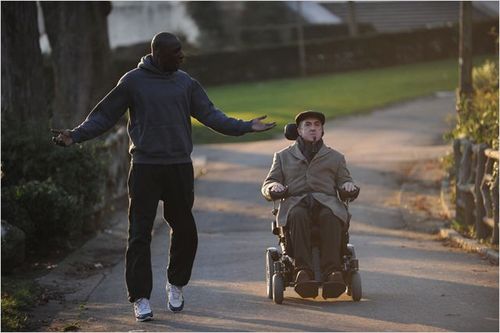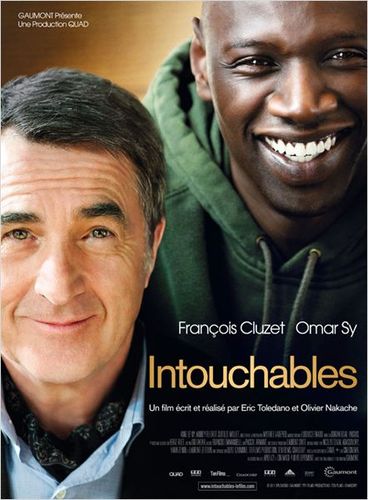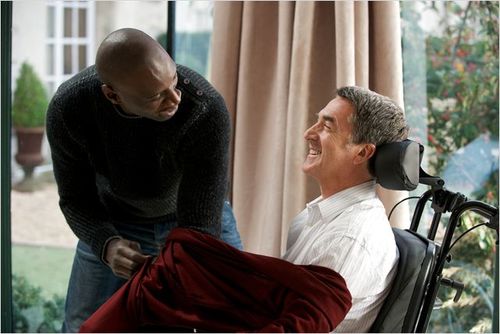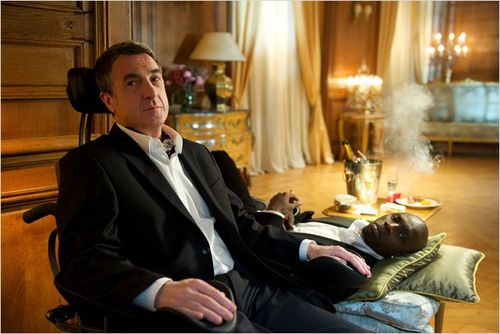It is the talk of the town and everyone wants to see the film: Untouchable (Intouchables) is in France a huge box-office hit and mid-way to catching up with the 20 million viewers of Welcome to the Sticks (Bienvenue chez les Ch’tis).
But the recipe wouldn’t work so well if people didn’t find something of their secret desire in it: to become untouchable, beyond all limits and controls. Untouchable thus opens with a scene in which the two acolytes end up with the police hot on their heels as they play the boy-racers, only to finally be escorted despite their sting of traffic offences. Philippe is paraplegic but fantastically rich, whereas Driss, fresh out of prison and unemployed, is full of life. Both are untouchable, one because of his wealth, the other thanks to his vitality. They are both sphinxes (evoked in a poem in the film), but at the same time vulnerable Icaruses, whose wings might well get burnt. They are nothing like the unflinching heroes of Westerns and are constantly on the edge of the abyss, but never actually topple thanks to the strength of the narrative. Moreover, this juxtaposition of opposites works unfailingly: in this improbable metaphor, this trivial contradiction gels the recipe and audiences leave the cinema moved.
That’s already pretty good going to guarantee the film’s success; but it’s not all, for Philippe, the little lily white aristocrat, grows close to Driss, the big black guy from the hoods. And there we are plumb in another dream: that of a society that is united in spite of its discord and differences. From the fleeting portrait of Driss’ family, we shall learn nothing about the deprived suburban housing estates other than the same old tired stereotypes: a large, noisy family, absent father, mother working herself to the bone in her cleaning job, a teen going off the rails, and the depressing mammoth housing blocks. Of the aristocrat Philippe, we only glean jaded visions and museum-like interiors too. Untouchable has no pretensions to being a social film; nor is it a realistic one to boot. On the contrary, it offers a dated image of France stuck in its wheelchair while the deprived suburban neighbourhoods explode with life. And, hallucinatory wonder of wonders, for the duration of a well wrapped film, old France makes its peace with immigration, laughs, grows to like it, while immigration generously embraces old France in its arms.
Are we thus witnessing a country that queues up in the cold to dream the very opposite of what its elected leaders are proposing in its future? A country about to kick them out in favour of something else? Will the 2012 elections confirm the vision of a profound change at the heart of old postcolonial French society of which Untouchable’s success happens to be the enunciator? A few certitudes have undoubtedly taken a knock, but the film’s accumulation of clichés sheds doubt on the likelihood of such a turnaround. Already, the mythical black blanc beur (Black-White-Arab) of the 1998 football World Cup changed nothing in terms of discrimination. A film that changes things is a film that perturbs and puts a finger there where it hurts. The success of Untouchable‘s comfortable consensus does nothing more than confirm the deep-rooted illusion of a society that sublimes itself into something it is not.



















